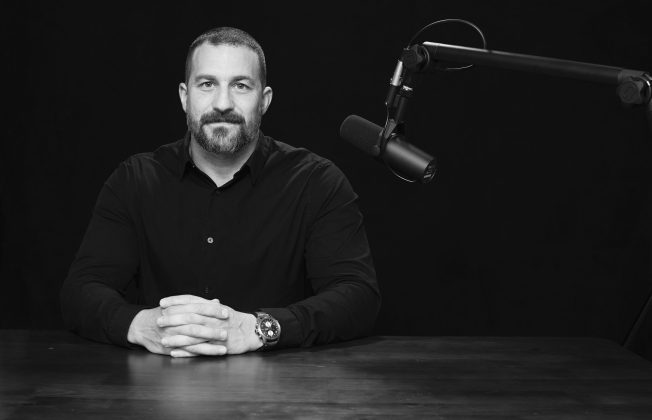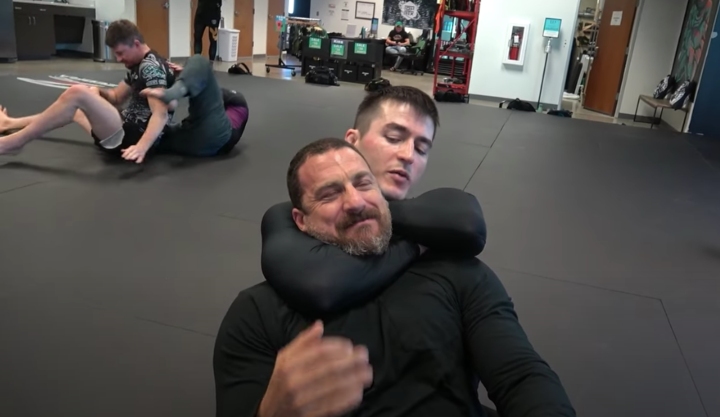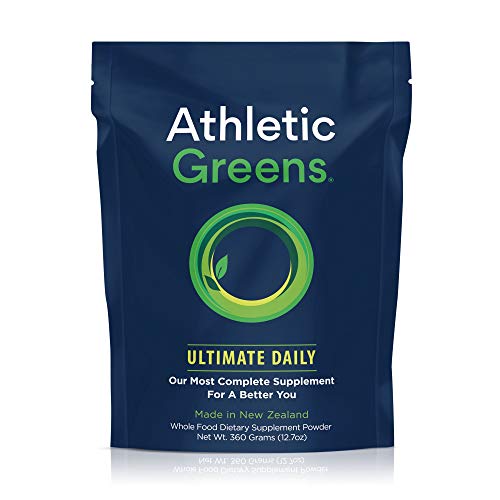For the past 10 years, Dr. Huberman has devoted between 12 and 16 hours a day to the practice of fasting, also called time-restricted eating. While some adjust their eating patterns to lose weight, combat dietary concerns or even as a tool to enhance fitness goals, this renowned neurobiologist limits his eating times to a relatively short window of every day for scientific reasons.
While a tenured professor at Stanford University School of Medicine, Dr. Huberman has conducted extensive research around neuroscience, the study of the brain and its connection to the body’s organs. His findings further explore the brain’s impact on how we act, feel, and ultimately are health-wise. Dr. Huberman asserts that improvements in mental focus, liver health, muscle, longevity, and blood glucose levels, as well as weight loss and fat loss all are byproducts of time-restricted eating combined with a specific diet.
Dr. Andrew Huberman’s Diet
The practice of time-restricted eating is not uncommon. Still, many who attempt to fast may not follow a specific dietary plan or may follow a program that does not lead directly to mental and physical health improvement. Time-restricted feeding specifically means to contain food consumption in a specific window of time or during particular times of the day. Fasting is essentially the opposite: fasting is the time period when you are not providing nutrition to your body. Both time periods of fasting and time-restricted feeding are vital parts of the doctor’s approach to full physical and mental health.
Dr. Huberman’s plan provides for nutritional needs as well as takes advantage of the fasting period to utilize additional elements that address energy and mental sharpness. Let’s look at exactly how Dr. Huberman practices time-restricted eating and fasting, when he does (and doesn’t) eat, and which foods he counts vital in this dietary plan.
RELATED READING: Dr. David Sinclair’s Anti-Aging Protocol
Fasting Time Period
The crux of Dr. Huberman’s diet is the fasting time period. His pattern is to fast or refrain from eating (but not hydrating or drinking some liquids) for 12 to 16 hours daily. Occasionally, he finds that the fasting time period needs to be shorter, but that is the exception rather than the rule.
The time dedicated to fasting typically is overnight following dinner and then from waking up after sleeping about 8 hours until approximately noon. The total fasting hours include sleep time.
Does coffee break a fast for Dr. Huberman?
Hydration with water is permitted during the fasting time period as well as some additional drinks containing caffeine. This includes coffee and Yerba mate.
RELATED READING: Dr. Andrew Huberman’s Supplement Stack
Hydration
Upon waking up, water is a part of Dr. Huberman’s intermittent fasting diet. He starts the day with plenty of water that is flavored with lemon and, surprisingly, salt. His research has determined that many who follow a lower-carbohydrate diet can be sodium deficient, so adding salt to his hydration first thing in the day can help combat that potential problem for him and prevent any issues that being deficient in sodium might cause when he works out.
Interestingly, coffee or caffeinated beverages are not part of his early morning routine. Instead, he waits one and a half or two hours after he wakes up to enjoy a cup of coffee or Yerba mate. Delaying the caffeine allows him to feel the effects of caffeine nearing the end of the fasting period when it is needed the most.
RELATED READING: Dr. David Sinclair’s Anti-Aging Supplement List
Working Out
Fitting in time for fitness training is a regular part of Dr. Huberman’s day. He plans to get in his workout near the end of the fasting period. This means that after his hydration and caffeine but before his first meal, he will make time to exercise. Huberman practices various workout types such as weightlifting, Brazilian jiu-jitsu, as seen in the picture above, and cardio.
After working out, he typically will take his EAAs, or essential amino acids, for the day. His supplements are taken as needed or with the evening meal.
RELATED READING: David Sinclair’s Exercise Routine & Diet for Longevity
First Meal: Midday
Surprisingly, Dr. Huberman’s appetite determines the first “real” meal of the day. Some days he eats a larger meal, and others, it is smaller, depending on how intense his workouts are. When he is training harder with resistance exercises, his midday meal will be bigger and contain more carbohydrates than other days.
Regular Midday Meals
Regular midday meals usually contain no or minimal carbohydrates and lean heavily into protein. He enjoys eating lean red meat protein like ground beef or a ribeye steak. He usually accompanies his protein with one or more of his favorite vegetables like spinach, tomatoes, avocados, or broccoli.
This meal prep includes the healthy fat olive oil, perfect for grilling or sauteing up the meal. In addition, he likes to throw in Brazil nuts for another healthy fat that provides a punch of protein to this meal used to break his lengthy fasting period. Tim Ferriss also utilizes Brazil nuts as part of his protocol that naturally tripled his testosterone.
RELATED READING: Dr. Peter Attia’s Biohacking Toolkit
Midday Meals When Expending a Lot of Energy
For those heavy workout days, Dr. Huberman will increase his carbohydrate intake during this first meal. In addition to lean protein, healthy fats, and an assortment of vegetables, he will also consume some starchy carbohydrates like a bowl of rice or oatmeal.
Food purists may be amazed to learn that he likes to include a pat of butter in his occasional oatmeal. Still, he notes that his blood work is evaluated regularly to ensure he is not ingesting too much of anything, including saturated fats like those found in butter. He sometimes also likes to include fruit with these larger midday meals.
Afternoon Activities
Even though Dr. Huberman doesn’t officially plan for a large afternoon snack, he does fit in extra protein and hydration throughout the day. He may grab a handful of nuts like almonds to increase his protein intake and decrease hunger. He also includes plenty of hydration throughout the day, continuing to focus on water to stay healthy and minimize hunger between meals. Occasionally Dr. Huberman will also take some of his supplements (read Dr. Huberman’s Complete Supplement Stack here) or EAAs and occasionally Athletic Greens.
RELATED READING: 8 Tools to Biohack Your Way to Better Sleep
Athletic Greens
Occasionally in the afternoon or even after an intense workout, Dr. Huberman likes to mix up a nutritious drink full of vitamins and minerals. His nutrient-packed convenience solution is Athletic Greens. This drink comes as a powder in individual or bulk packages that can be mixed with 8 ounces of water for an individual serving. This gluten- and dairy-free supplemental drink provides 75 minerals, vitamins, and whole-food sourced nutrients without any added sugars, flavors, or unhealthy preservatives.
This beneficial beverage is a favorite of Dr. Huberman because it is an easy way to add in a healthy dose of nutrition without having to take the time to food prep or do more than shake or stir the powder in a glass. Besides dietary supplements, Dr. Huberman eats whole foods as close to their natural state as possible other than this Athletic Greens drink.
RELATED READING: Dr. Rhonda Patrick’s Supplement List
Dinner: The Last Supper Before Fasting Again
For the day’s final meal, Dr. Huberman continues his healthy eating habits. For his dinner, he eats the most significant volume of food of any meal. As a policy, he likes to talk for a walk just before or following this evening meal, depending on his schedule. And, in a switch up with his previously eaten food, this meal focuses on one main component: carbohydrates.
Dinner consists mainly of carbs or starchy foods, the only time of the day that is his priority for these types of foods. For this portion of his meal, he likes to nosh on rice or pasta as a base for the rest of his meal. However, Dr. Huberman also includes a tasty lean protein to complement his higher carbohydrate or starchy meal. Some common choices that he might select are salmon or tuna fish. In addition, the doctor likes to include a fresh green salad with lots of veggies alongside his starch and lean protein meal.
RELATED READING: Tim Ferriss’ Supplement List
Dinner Timing
One key concept motivating Dr. Huberman’s time-restricted eating pattern is how the body digests food. His extensive research and understanding of how the body digests and metabolizes food and his experience have led him not to eat his dinners too close to bedtime. He always tries to eat dinners that are not meat-heavy because he can notice a distinct difference in his sleep quality if he overeats meat too close to bedtime.
Dr. Huberman speculates that the gastric clearance for meat products is lengthier than other foods like the carbohydrates and lean proteins he does eat, which contributes to the sleep disturbances he experiences when he consumes a dinner with a lot of meat. As a result, he chooses to dine on leaner proteins at this final meal of the day and plan his meal for a few hours prior to bedtime rather than eating late or just before bed.
RELATED READING: Dr. Andrew Huberman’s Sleep Cocktail
Supplements
In addition to following a relatively strict and consistent time-restricted eating schedule, Dr. Huberman supplements his dietary intake with some nutrients and products. While he strives to eat a healthy, balanced diet, the doctor believes that including many of these keeps him in optimal health and helps to ward off potential negative, avoidable health issues.
He consistently takes his supplements in the morning after his training every day, while some may occasionally accompany a meal or be taken mid-afternoon between meals. Instead of pro- or post-biotics, his regimen typically includes:
- NMN (Nicotinamide Mononucleotide) – NMN is a famous anti-aging supplement known as the “miracle molecule”. Huberman began taking it in 2022 and uses Momentous NMN. Use code ‘Brainflow’ at checkout for 15% off!
- Momentous Whey Protein – this dairy-based protein powder can be mixed up into fruit or veggie shakes and is used to assist with muscle growth
- Multivitamin That Includes Vitamin B – to help metabolize foods more quickly
- Boron – supplements are taken for their anti-inflammatory and anti-aging effects; 2-4mg
- Vitamin K2 – aids in calcium retention to help bones, heart, teeth and nervous system
- Omega-3 Fish Oil – at least 2g of EPA (he prefers Thorne Fish Oil and Carlson’s Fish Oil with lemon flavor) is taken for its effects as an antidepressant, blood lipid profile effects, as well as its effects on skin health and mental health
- Vitamin E – occasional use for its antioxidant effects
- Green Tea Extract – occasional use for its ability to reduce cholesterol levels, increase alertness, and decrease cancer risks
- Garlic Extract – occasional use for lowering blood pressure and cholesterol levels
- Creatine Monohydrate – to enhance exercise and muscle performance
- L-Glutamine – for its positive effects on the immune system, neural functions and intestinal functions
- Acetyl-L-Carnitine – used for fat loss properties
- Alpha-GPC – used for brain health; early in the day he will take 300mg, 2 or 3x a week
- L-Tyrosine – used for brain health; he will occasionally add 500mg to his regimen
- Phenylethylamine (PEA) – this focus and work aid is sometimes included in his regimen with 500mg once every one to two weeks for bouts of intense work
- Apigenin – aids sleep; when used, 50mg. This, along with magnesium and L-theanine are form his famous sleep cocktail.
- Magnesium L-Threonate – a nootropic that boosts brain function as well as aid in sleep; when used, 300-400mg. Be sure to use Magnesium L-Threonate as it is the only one that can penetrate the blood-brain barrier.
- L-Theanine – aids sleep; when used, 200-400mg. Huberman specifically uses Suntheanine.
- Tongkat Ali – aids in testosterone levels; when used, takes 400 mg
- Fadogia extract – aids in testosterone levels; when used, takes 425 mg
- low-sugar fermented foods – although not a supplement, Dr. Huberman tries to eat a few servings of foods like kimchi, sauerkraut or natto as they decrease the number of inflammatory markers in the body
RELATED READING: Dr. Rhonda Patrick’s Fish Oil Protocol
Exceptions to the Rule: When You Need to Break the Fast
Dr. Huberman has an off day just like everyone else. Occasionally, he doesn’t feel like fasting all the way to midday, so he might break his fast early and have a healthy, filling breakfast. When he needs the extra energy in the morning that a meal can provide, he whips up some tasty eggs to enjoy. Dr. Huberman notes that eating three or four eggs for breakfast can give him a protein infusion that will up his energy and does not disrupt his fasting pattern in the long run.
For the midday meal, Dr. Huberman occasionally adds carbohydrates to his breakfast meal when he feels his extra physical exertions with working out warrant it. He may also have an Athletic Greens shake before or after his morning workout or as an addition to his mid-afternoon snacking time.
One thing that Dr. Huberman does not switch up is his basic schedule. He typically always eats his meals during the same windows of time each day. He prefers to stick to the time-restricted frames that work best for him: fasting for 12 to 16 hours each day and confining his eating during the remaining eight to ten hours. Dr. Huberman has been practicing this intermittent fasting/time-restricted eating pattern for many years, so his sleeping and waking times remain much the same.
RELATED READING: Joe Rogan’s Insane Supplement Stack
Dr. Huberman’s Lifestyle for Good Health
This well-respected neurobiologist is in optimal health thanks to a science-backed nutritional plan and a lifestyle that takes advantage of the natural body cycles of food digestion and processing. His continued research on the brain and its connection to our overall health keeps Dr. Huberman at the forefront of the common discussion about treating our bodies well with nutritious, beneficial foods and supplements.
His own healthy lifestyle approach based on time-restricted eating and fasting periods shows that Dr. Huberman understands what it takes to do the right thing for your brain and body health and lives it out every day with his commitment to his diet and lifestyle choices.
RELATED READING: Dr. Andrew Huberman’s Optimal Morning Routine




i would would like to see more onseniors lifting wieghts on time restricted eating not loseing mucsale
Yay google is my king assisted me to find this great site! .